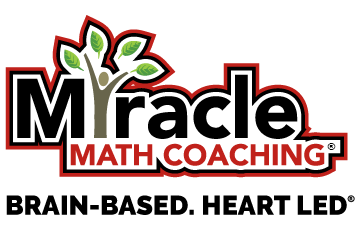5 Hot Careers in Math
What are the best, highest paying, fastest growing careers for math people?
It’s no secret that over the next few decades we will see an increase in the demand for people in the medical field and service industry. The need for skilled employees in STEM related careers will increase with the demands of innovation. So what careers should you be checking out if you are interested in or excel in math? What are the best, highest paying, or fastest growing careers for math people?
In November 2014 Business Insider published “The 10 Highest-Paying Jobs For Math Geeks.”
And recently Careercast.com featured “The Best Jobs of 2015.” Math jobs rocked it.
A quick glance…
A few interesting listings that placed well in the above resources:
- Data Scientist, IT
- Quantitative Analyst
- Actuary
- Data Modeler
- Mathematician
 The details….
The details….
Ever wondered what a quantitative analyst actually does? Or what a day in the life of an actuary looks like? Read on to explore these exciting and growing fields.
What is a data scientist?
If there is one field that is hot right now it is data science. So what exactly is a data scientist and what does he or she do? According to I Programmer, an online magazine for (you guessed it) programmers, a data scientist…
- is “similar to a business/ data analyst”
- “combines knowledge of computer science and applications, modelling, statistics, analytics and math to uncover insights in data”
- “takes those insights and combines them with strong business acumen and effective communications to change the way an organisation approach challenges”
Dan Woods writes, “Data scientists are like the master chefs of the business world […] a celebrated specialist who […] embodies the profound set of skills, techniques and knowledge needed to produce a singular menu.”
Read more of Woods thought-provoking article on the current direction of data science…
How much money does a data scientist make? On the average sources report $90,000 to $130,000 annually. Careercast.com lists an income potential of $124, 149 and a growth outlook of 15%.
Education: According to Business Insider the most common degree level for a data scientist is a Bachelor’s. But the way we are educated and gain skills is rapidly changing. If you are interested in learning more about becoming a data scientist check out these sources:
Udacity: “8 Skills You Need to Be a Data Scientist” by Dave Holtz
Datascope Analytics: “How do I become a data scientist? An evaluation of 3 alternatives”
Lifehacker: “Career Spotlight: What I do as a Data Scientist” by Andy Orin (interview with Dan Mallinger).
 What is a quantitative analyst?
What is a quantitative analyst?
Quantitative analysts or “quants” typically work in the financial sector. From CNN Money, they :
- “use statistical models and algorithms”
- “try to predict stock valuations, market risks and other factors”
- “they base investment recommendations on their findings”
Check out the current postings with indeed.com to get an idea of the demand for people in this field. Despite the demands it is a very competitive marketplace and if you are looking for a career in finances then you should dig in deep to find out how to stand out.
How much money does a quantitative analyst make? Business Insider states that a quantitative analyst has a median pay of $103,000 per year.
Education: The most common degree level held is a Master’s with 14% of those working in the field being math majors (Business Insider). If you think a career in the financial industry may be for you, take the time to check these out:
QuantStart: “Understanding How to Become a Quantitative Analyst” by Michael Halls-Moore [2012]
Sokanu: “What does a Financial Quantitative Analyst do?”
What is an actuary?
An actuary works in the area of finance and insurance:
- analyzes risk factors (financial, social, health)
- uses math, theory, business and social knowledge
- most common in insurance industry
- use of statistics and strong analytical skills
Being an actuary is often cited as a very rewarding job. Check out these sources for an expanded look at what the job involves, the exam process and suggestions for preparation:
How much can an actuary earn? It depends on if you are an actuary, actuarial analyst or a senior actuarial analyst (there may be some overlap in titles). According to Business Insider the wages range from a median pay of $73-$98,000 per year. Purdue University Department of Mathematics states that the actuary profession is more open to those who are typically underrepresented in other fields and that starting salaries can range from $45,000 to $55,000.
Education: An actuary typically holds a bachelor’s degree and 27 to 40% of those degrees are in math (Business Insider). *It’s important to note that in the Careercast piece, commenters who work in the field make important contributions to the conversation. Despite the projected 25% growth rate, a few note and agree that the market has changed and someone wanting to enter the field should have a degree in mathematics; passing the first exam to help move you towards landing an internship is a smart move.
If you happen to be preparing for the exam then you should certainly check out these resources to help you prepare. They are highly viewed (over 81,000) as of 2007. I just happened to stumble upon the author G. Stolyarov II on G+. If you are a G+ user I would also suggest checking out his profile because in addition to his knowledge in actuarial studies he has a variety of projects, articles and compositions of interest.
 What is a data modeler?
What is a data modeler?
According to wiseGeek a data modeler is a person who:
- “works with data in order to turn the information into something useful for business”
- gathers data, analyzes, organizes, and gets it ready for interpretation
- can work in creating computer programs and applications to handle and deliver data
- can be involved in every step of the data process design from conception of goal, collection process and methods, storage, arrangement, to design and use
When it comes to working as a data modeler, think IT and design thinking. Data modelers play critical roles in designing “computer databases that help bankers, scientists, and other professionals organize data in computer systems” (Learn.org).
How much can a data modeler earn? According to Business Insider a data modeler has an average median income of $91,200 annually.
Education: The most common degree is a master’s with an average of 18% holding degrees in mathematics (Business Insider). But becoming a successful data modeler isn’t going to be answered in a single degree program. Some work in the field without obtaining a higher degree and continuing to move forward with certifications and training. But larger organizations may prefer a master’s degree in computer science, information systems or applied mathematics. It’s an IT career so keeping up to date is important.
“Along with your college degree, training in using industry standard data modeling tools may help in becoming a data modeler.” – wiseGeek
 What exactly is a mathematician?
What exactly is a mathematician?
Most of us understand that a mathematician is an expert in math and are familiar with a mathematician’s role in the field of education. But what other jobs are out there for mathematicians? There are a diverse set of careers open to mathematicians in :
- environmental sciences and climate study
- the field of medicine
- robotics
- astronomy
- animation
Basically mathematicians are valuable in any field that relies on accuracy, analytical thinking, problem and solution conceptualization and research methods for any number of projects.
Read more about opportunities as a mathematician…
American Mathematical Society: “What Do Mathematicians Do?”
StudentScholarships.org: “Mathematicians – What They Do”
How much can a mathematician earn? Average yearly salary for a mathematician is $101,360 per year and has a projected 23% growth rate. (Bureau of Labor Statistics)
Education: No surprise that 70% of mathematicians hold degrees in mathematics and the most common degree level is a master’s (Business Insider).
It is never the wrong time to start thinking about your future or to consider a career change.The educational pathways to some interesting math-related and technical careers vary, but a strong foundation in math will help you along the way.
Remember Miracle Math Coaching isn’t just for children. Miracle Math has an effective Adult Learners Program. So if you are considering or on a track towards one of these fast growing careers, whether you are enrolled in a certification class for a certain skill set, completing a degree online or in a traditional classroom setting (or taking advantage of the free online training through MOOC’s or focused webinars), Miracle Math is ready to help you navigate your journey.


 The details….
The details…. What is a quantitative analyst?
What is a quantitative analyst?  What is a data modeler?
What is a data modeler? What exactly is a mathematician?
What exactly is a mathematician?




